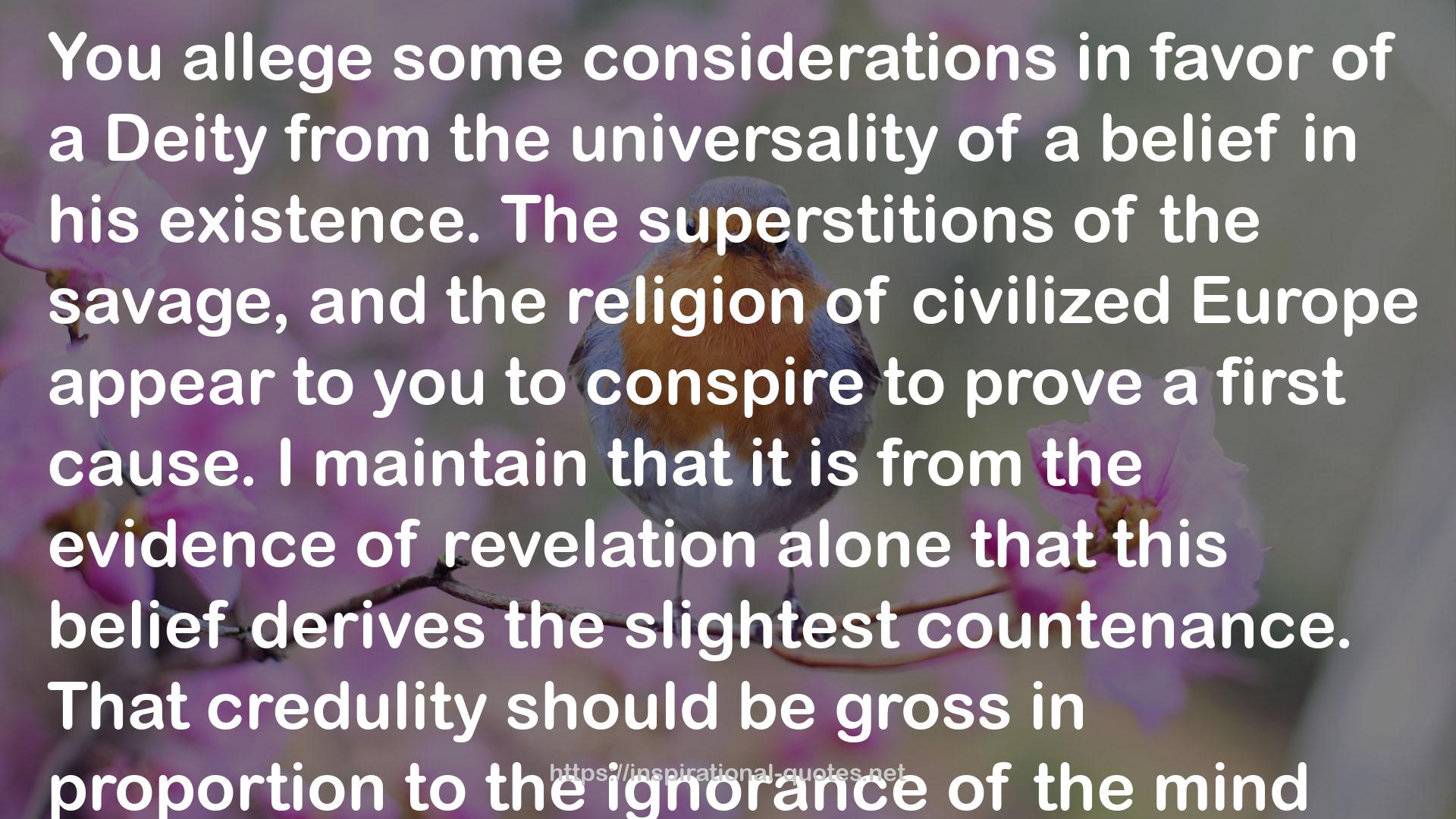" You allege some considerations in favor of a Deity from the universality of a belief in his existence. The superstitions of the savage, and the religion of civilized Europe appear to you to conspire to prove a first cause. I maintain that it is from the evidence of revelation alone that this belief derives the slightest countenance. That credulity should be gross in proportion to the ignorance of the mind that it enslaves, is in strict consistency with the principles of human nature. The idiot, the child and the savage, agree in attributing their own passions and propensities to the inanimate substances by which they are either benefited or injured. The former become Gods and the latter Demons; hence prayers and sacrifices, by the means of which the rude Theologian imagines that he may confirm the benevolence of the one, or mitigate the malignity of the other. He has averted the wrath of a powerful enemy by supplications and submission; he has secured the assistance of his neighbour by offerings; he has felt his own anger subside before the entreaties of a vanquished foe, and has cherished gratitude for the kindness of another. Therefore does he believe that the elements will listen to his vows. He is capable of love and hatred towards his fellow beings, and is variously impelled by those principles to benefit or injure them. The source of his error is sufficiently obvious. When the winds, the waves and the atmosphere act in such a manner as to thwart or forward his designs, he attributes to them the same propensities of whose existence within himself he is conscious when he is instigated by benefits to kindness, or by injuries to revenge. The bigot of the woods can form no conception of beings possessed of properties differing from his own: it requires, indeed, a mind considerably tinctured with science, and enlarged by cultivation to contemplate itself, not as the centre and model of the Universe, but as one of the infinitely various multitude of beings of which it is actually composed. "
― Christopher Hitchens , The Portable Atheist: Essential Readings for the Nonbeliever
